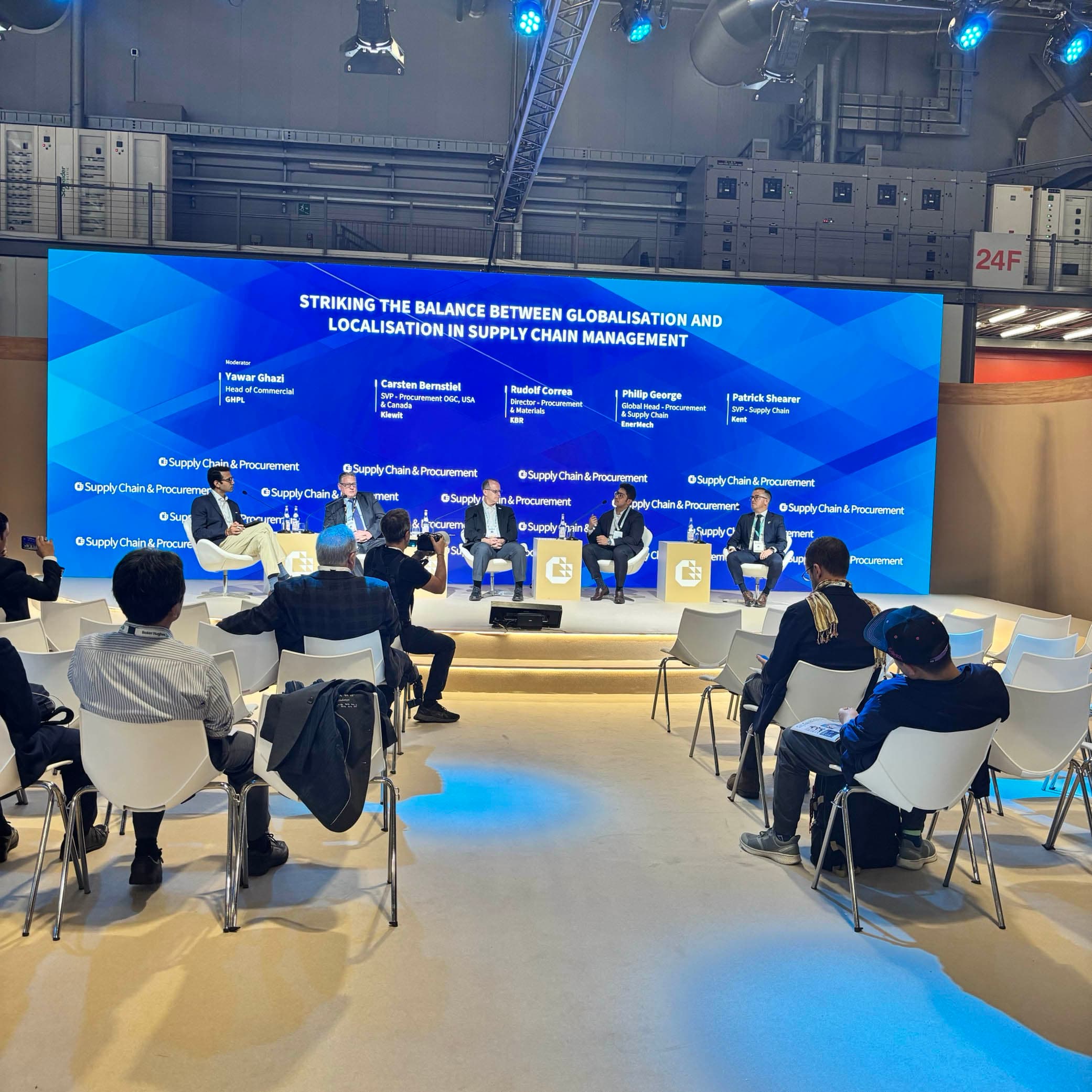As energy projects across the Middle East grow in scale and complexity, procurement strategies are being reshaped by a dual challenge: meeting In-Country Value (ICV) mandates while maintaining cost-efficiency and schedule discipline.
Philip George, EnerMech’s Global Head of Procurement & Supply Chain, joined Gastech’s 2025 Procurement and Supply Chain Forum to explore how companies can strike the right balance between compliance and performance. Here, he shares his perspective on the evolving procurement landscape and the role of digital transformation in enabling smarter decisions.
ICV programs, championed by national oil companies such as Aramco, ADNOC, and QatarEnergy, are designed to stimulate local economies by encouraging investment in domestic goods, services, and talent.
For contractors, ICV certification is no longer just a compliance requirement, it’s a competitive advantage. Improving scores demands long-term local investment, third-party spend, and the hiring of national talent. While establishing manufacturing facilities or service centres can significantly boost scores, many multinational firms find more immediate opportunities in local procurement and workforce nationalisation.
This is where the tension lies. Integrating local suppliers into global supply chains can introduce inefficiencies and cost pressures, particularly when those suppliers lack the scale or technical maturity of international vendors. Similarly, building a national workforce requires time, training, and resources, often stretching project budgets and timelines.
But ICV should not be viewed as a constraint. Companies that treat it as a strategic lever, investing in local partnerships and talent development, are better positioned to win contracts and build sustainable operations in the region.
As ICV requirements reshape procurement strategies, digital tools and AI are helping businesses adapt with greater agility and precision. AI-powered platforms now offer real-time insights into supplier performance, inventory levels, and production timelines.
Machine learning models are transforming demand forecasting by analysing vast datasets, from market trends to economic indicators and even social sentiment. Advanced analytics tools are enabling procurement teams to simulate sourcing scenarios and evaluate trade-offs across cost, lead time, and reliability. These innovations are already delivering tangible results, such as reduced logistics costs and improved delivery performance.
Procurement success in the Middle East increasingly depends on a company’s ability to balance global efficiency with local compliance. ICV mandates are evolving, and they’re here to stay.
By embracing digital tools, investing in local talent, and building strong supplier partnerships, businesses can not only meet regulatory requirements but also unlock long-term value. At EnerMech, we’re committed to delivering procurement strategies that are compliant, cost-effective, and digitally enabled, helping our clients navigate complexity and deliver with confidence.
